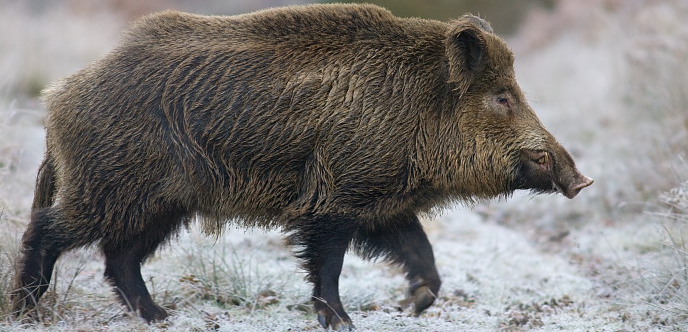Belarus has been accused of hiding cases of African swine fever (ASF) after products containing the virus genome were discovered in Russia.
Strict sanctions were immediately imposed on Belarus pig farmers; as Russian veterinary watchdog Rosselhoznadzor banned the import of pork and live pigs, by-products, sausages, semi-finished products and even cans with the content of pig-derived products.
Rosselhoznadzor blamed Belarus for hiding ASF outbreaks, although the Belarus Government denied the claims, issuing a statement saying: “The situation in regard to the animal diseases, including ASF, is sustainable with no registered outbreaks”.
However, there have been a number of reports of pig mortality and subsequent culls on farms in Belarus, with no official explanation.
That Belarus may be hiding ASF outbreaks wouldn’t be a surprise to veterinary services in neighbouring countries. Ukraine and Poland have repeatedly reported cases of infected wild boars approaching from Belarus territory – which is why Poland is spending $42 million on plans to build a fence one kilometre long and two metres high.
This isn’t the first time the ASF genome has been identified in sausages supplied from Belarus – so why has Rosselhoznadzor only now decided to impose restrictions?
Indeed, Vladimir Semashko, the deputy Prime Minister of Belarus, commented that ‘somebody in Russia was lobbying that decision’. He went further, suggesting the ban is linked to Russia’s desire to protect its domestic market.
That sounds feasible. After all, fears of an oversupply are steadily growing in Russia, where production growth is depressing prices.
The Russian Union of Pork Producers (RUPP) estimated that prices for half-carcases have dropped by 15% during the past year and by 2.8% already in 2018 to Rub145,610 (£1,694)/tonne. This is the lowest price ever seen in the domestic market and is putting producers under intense financial pressure.
Brazil, the largest foreign supplier into the Russian market last year, has already been the subject of one pork import ban. So the argument goes that by protecting its customers and maintaining sanitary safety of the products on the shelves, Russian veterinary agencies are also removing some pork blocking the domestic market.
The recently imposed sanctions have delivered a major blow to Belarus pig farming, effectively stopping pork exports from the country. In 2017, Belarus pork exports were worth $14m, 95% of which was sold to Russia.
It was exporting small quantities of pork, but these were primarily products with higher added value, such as pork sausages and ready-to-cook products.
It’s expected the current restrictions will increase the demand for pork from Russian meat-processing plants and help slow the fall in prices. Even so, this may be only a temporary solution. Russian farmers keep building new capacity, despite pleas from the Government to sit tight.
As a result, Russia produced 3.5m tonnes of pork in slaughter weight in 2017 – an increase of 169,400t on the previous year.
Year-on-year comparisons from the RUPP predict that 2018 domestic production could increase by 8% to 280,000t.




